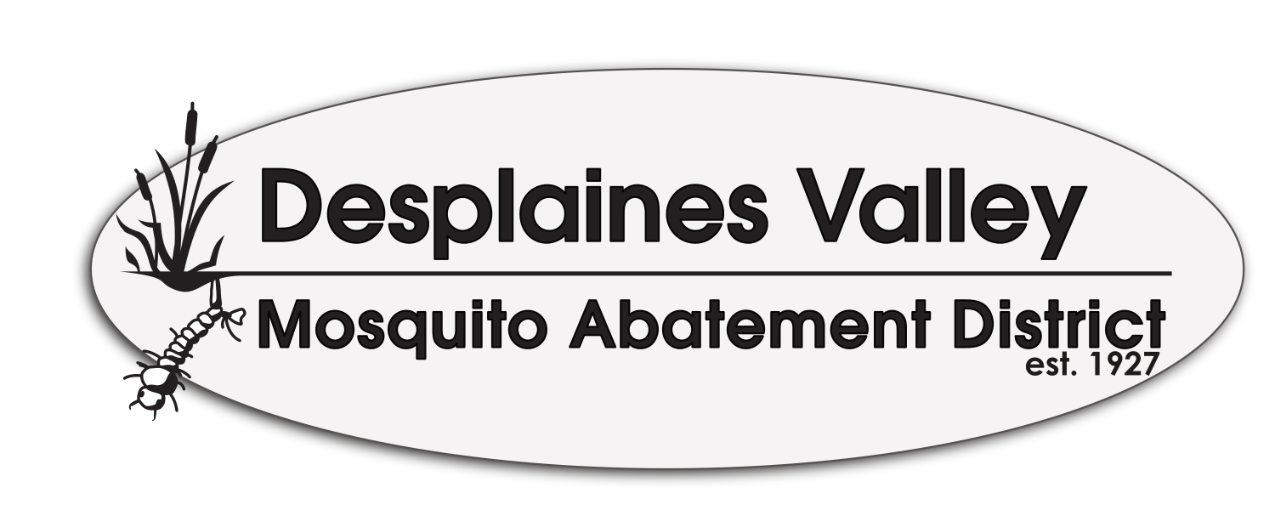Mosquito Control
The mosquito goes through four stages in its life cycle: egg, larva, pupa, and adult.
Mosquitoes are confined to water during their larval and pupal stages, where they are localized
and concentrated. Primary mosquito control efforts used by the District focus on
larval/pupal control and source elimination. Controlling mosquitoes at this stage when they can't
fly away allows the district to use the most efficient, environmentally safest, and most
economically sound methods available. All control methods are accepted and recommended by the
Illinois Department of Public Health and are continuously evaluated by the district to ensure
desired goals.

Source elimination is the only permanent method of mosquito control. This approach ranges
from the simple removal of man-made sources such as discarded tires or other artificial
containers to the maintenance of drainage systems to prevent water retention. Discarded
vehicle tires are an important source of the species of mosquitoes that can transmit disease. In
addition, they are difficult to treat because they are often scattered in small numbers. The
collection and proper disposal of tires is an effective and important part of our program.
 When source elimination is not possible, larval/pupal control becomes necessary. All other sources found to contain
mosquito larvae/pupae through surveillance are treated with either a biological larvicide called
Bti, an insect growth hormone called methoprene that prevents pupae from becoming adults, or
a degradable larvicide oil. Sources treated by the district include artificial containers such as
tires or buckets, open ditches, flooded fields, retention ponds, swamps, and extensive
floodplain areas along creeks and rivers.
When source elimination is not possible, larval/pupal control becomes necessary. All other sources found to contain
mosquito larvae/pupae through surveillance are treated with either a biological larvicide called
Bti, an insect growth hormone called methoprene that prevents pupae from becoming adults, or
a degradable larvicide oil. Sources treated by the district include artificial containers such as
tires or buckets, open ditches, flooded fields, retention ponds, swamps, and extensive
floodplain areas along creeks and rivers.
 Roadside and off-road storm water catch basins are a primary mosquito source found in urban
areas. Water collected in basins is often high in organic material, making them ideal for
mosquito development. The kind of mosquitoes found in catch basins are involved in
West Nile Virus transmission to humans. Treatment of catch basins is necessary throughout
the season.
Roadside and off-road storm water catch basins are a primary mosquito source found in urban
areas. Water collected in basins is often high in organic material, making them ideal for
mosquito development. The kind of mosquitoes found in catch basins are involved in
West Nile Virus transmission to humans. Treatment of catch basins is necessary throughout
the season.
Once mosquitoes reach the adult stage and take flight, they become much more difficult to
effectively control. Any adult mosquito control is supplemental and is implemented as a contingency measure for when there is a significant risk of disease transmission detected in mosquitoes.
